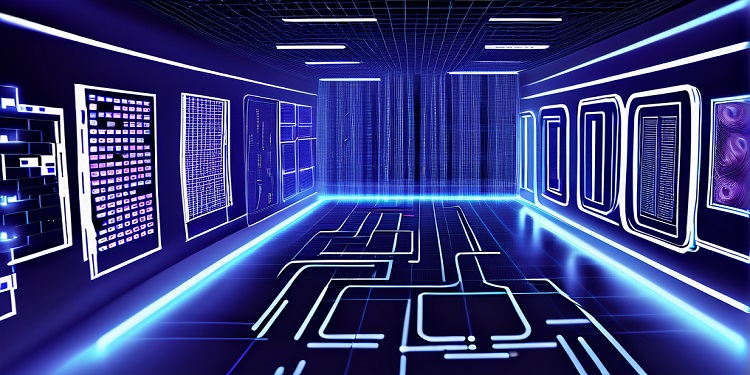The workplace of the future will rely heavily on vast amounts of data, driving the need for more advanced artificial intelligence (AI) systems, enhanced AI-trained workers, and more efficient computational infrastructure. This growing reliance on data has led to an increasing demand for solutions that can manage, interpret, and act upon the influx of information. Large tech companies possess the resources and expertise necessary to meet these demands, but smaller enterprises and individuals often face hurdles in accessing such advanced technologies.
To address this gap, an international research team, spearheaded by Concordia University, has designed a novel framework aimed at making AI tasks, specifically those within deep reinforcement learning (DRL), more accessible and transparent for a wider user base. This framework, recently detailed in Information Sciences, is positioned to bridge the technological divide by offering accessible AI solutions through a decentralized approach.
Unlocking the Power of Deep Reinforcement Learning
DRL, a specialized subset of machine learning, merges two powerful methodologies—deep learning, which relies on neural networks to uncover patterns in massive datasets, and reinforcement learning, where an agent refines its decision-making capabilities through environmental interactions, reinforced by a reward and penalty system. These techniques have already proven valuable in diverse industries, including gaming, robotics, healthcare, and finance. However, the resources required to train and utilize DRL models are typically out of reach for many organizations and individuals.
The framework introduced by Concordia’s team connects developers, companies, and individuals with AI service providers who possess the necessary expertise and models. What makes this solution especially innovative is its use of blockchain and smart contracts to pair users with the right resources. The process, driven by crowdsourcing, allows those with specific AI needs to tap into a pool of experts and computational power, which was previously only available to larger enterprises.
Smart contracts play a pivotal role by ensuring transparent transactions and agreements between users and service providers. With predefined conditions coded into these contracts, the framework automates the process of connecting users with appropriate service providers based on their requirements and expertise. This structure ensures a streamlined and efficient way of accessing AI resources, all while maintaining transparency and trust through blockchain technology.
Widening Access and Reducing Complexity
This innovative framework significantly lowers the barriers for smaller organizations and individuals interested in utilizing DRL. While previously, training DRL models required extensive computational power and expertise, the researchers aim to democratize access by providing both through their decentralized service. Users, regardless of size or capability, can sign up to the platform, develop a profile, and be assigned tasks suited to their expertise and training. The researchers see this as a way to open DRL to a broader demographic, enabling more users to harness the potential of AI without needing substantial upfront investment in infrastructure or knowledge.
According to the research team, decentralizing the computational effort through blockchain will help reduce costs and risks. The framework mitigates the risk of catastrophic failure, such as server crashes or cyberattacks, by distributing the workload across multiple machines. With dozens, or even hundreds, of machines working on the same problem, any potential issues are contained, ensuring the platform remains operational. Blockchain technology also ensures that all activities are logged and tamper-resistant, adding an additional layer of security and trust.
In addition to offering resilience and security, the framework addresses the high costs and lengthy timelines associated with training AI models. The system allows users to take advantage of existing models that can be tailored to fit their specific requirements with minimal adjustments. For instance, a large city that has developed an AI model to optimize traffic light sequences might share this model with smaller cities, which could adapt it to their local needs without starting from scratch.
A Collaborative Effort for Global AI Access
The collaborative nature of this framework is one of its greatest strengths. Researchers from Khalifa University in Abu Dhabi also played a significant role in contributing to the study, indicating the global importance of making AI more accessible to a wider range of users. By enabling organizations to share resources and expertise through this decentralized platform, the framework can help accelerate the development and application of AI solutions worldwide.
In conclusion, the framework developed by Concordia University and its partners represents a critical step forward in making advanced AI technologies, such as DRL, more accessible and transparent to the broader public. By leveraging blockchain and crowdsourcing, the system addresses the key barriers that have traditionally limited smaller enterprises and individuals from utilizing cutting-edge AI solutions. As the workplace of tomorrow becomes increasingly reliant on vast amounts of data, solutions like this framework will be essential in empowering more people to harness the full potential of artificial intelligence.
